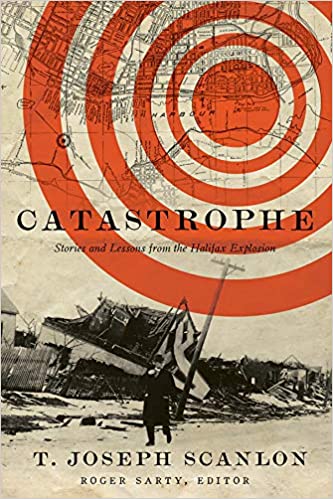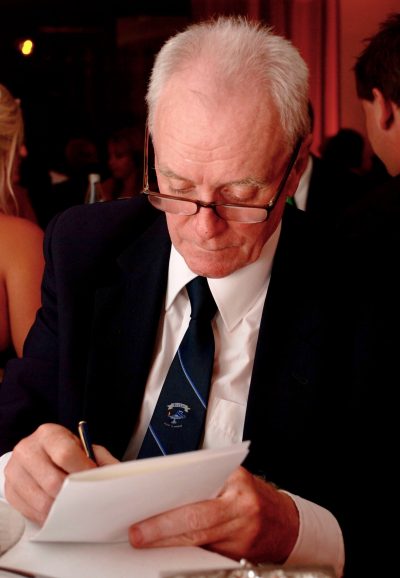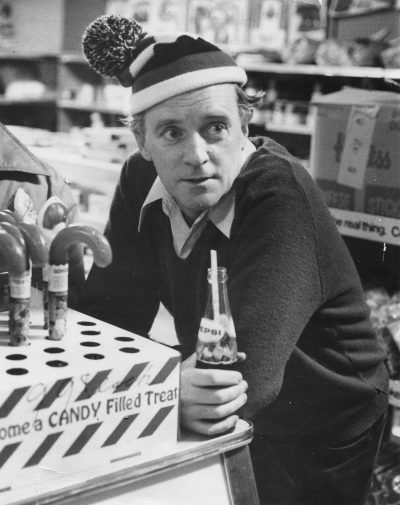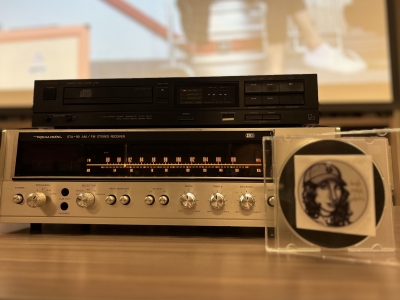 By Jena Lynde-Smith
By Jena Lynde-Smith
Joe Scanlon’s years of research into the legendary Halifax explosion have finally been published as a book, some five years after his death in 2015.
Professor Emeritus Joseph “Joe” Scanlon’s manuscript about the Halifax explosion has been published posthumously by the Wilfrid Laurier University Press. Today marks 103 years since the disaster that killed more than 1,800 people.
Catastrophe: Stories and Lessons from the Halifax Explosion is an examination of tragedy – the worst non-natural disaster in North American history before 9/11 – and how it influenced later emergency planning and theory.
Scanlon spent much of the latter half of his life investigating the event.
“My father really had two parallel careers, one teaching journalism and one studying the sociology of disaster. His book on the Halifax explosion reflects both,” said David Scanlon, Joe Scanlon’s son, and also a School of Journalism graduate.
“The compelling stories reflect his background as a journalist, and the fascinating lessons reflect his background as a disaster scholar.”
 Scanlon joined Carleton’s School of Journalism as a professor in 1965 and taught here for nearly 30 years, serving as director for seven of them. A graduate of Carleton’s journalism school, Scanlon worked in various radio, print and television roles at both the Toronto Daily Star and CBC Television before joining Carleton.
Scanlon joined Carleton’s School of Journalism as a professor in 1965 and taught here for nearly 30 years, serving as director for seven of them. A graduate of Carleton’s journalism school, Scanlon worked in various radio, print and television roles at both the Toronto Daily Star and CBC Television before joining Carleton.
Scanlon was intensely interested in how death and destruction were documented. This allure led him to create and run Carleton University’s Emergency Communications Research Unit (ECRU). The ECRU project operated for nearly two decades and would take groups of students to Canadian disaster sites to document what happened and how information about the events was communicated.
“I remember the last time I spoke with Joe, not long before he passed away. He was so excited about the research and writing he was doing at the time on the Halifax Explosion,” recalled Carleton journalism professor Randy Boswell, a former student of Scanlon’s and a member of his Emergency Communications Research Unit in the late 1980s.
“Our ECRU team was investigating a huge forest fire that had swept across parts of New Brunswick in 1986,” Boswell recalled. “Joe’s approach was to painstakingly reconstruct the way emergency officials responded to any crisis, how different agencies communicated with each other and how the effectiveness of these interactions strengthened or weakened the overall response.”
 Boswell said the experience was invaluable for an aspiring journalist.
Boswell said the experience was invaluable for an aspiring journalist.
“I remember that we tracked down two of the province’s senior fire officials — two men who had been at the centre of the fight against the ’86 blaze — at a hunting camp deep in the woods, down logging roads in what seemed like the middle of nowhere. The recollections of these two officials about what had happened a few years earlier, how they’d acted to manage a provincial emergency, helped piece together the bigger story that Joe was trying to wrap his mind around.”
Josh Greenberg, Director of Carleton’s School of Journalism and Communication and one-time research associate for the ECRU, said that Scanlon was a “trailblazer” in the fields of disaster journalism, sociology of disasters and emergency communications.
“I remember meeting Joe for the first time shortly after my arrival to Carleton in the early 2000s,” he said. “He was long retired by then but still a towering figure in the field. We all read Joe’s work.”
Upon his retirement in the mid-1990s, Scanlon was appointed Professor Emeritus and remained passionately invested in his research. In 2002, he received the Charles Fritz award from the International Research Committee on Disasters for his lifetime contribution to the sociology of disaster.
Catastrophe: Stories and Lessons from the Halifax Explosion, was launched on Dec. 3 by the Wilfrid Laurier University Press and is available for purchase here.
Sunday, December 6, 2020 in General, Journalism News
Share: Twitter, Facebook



